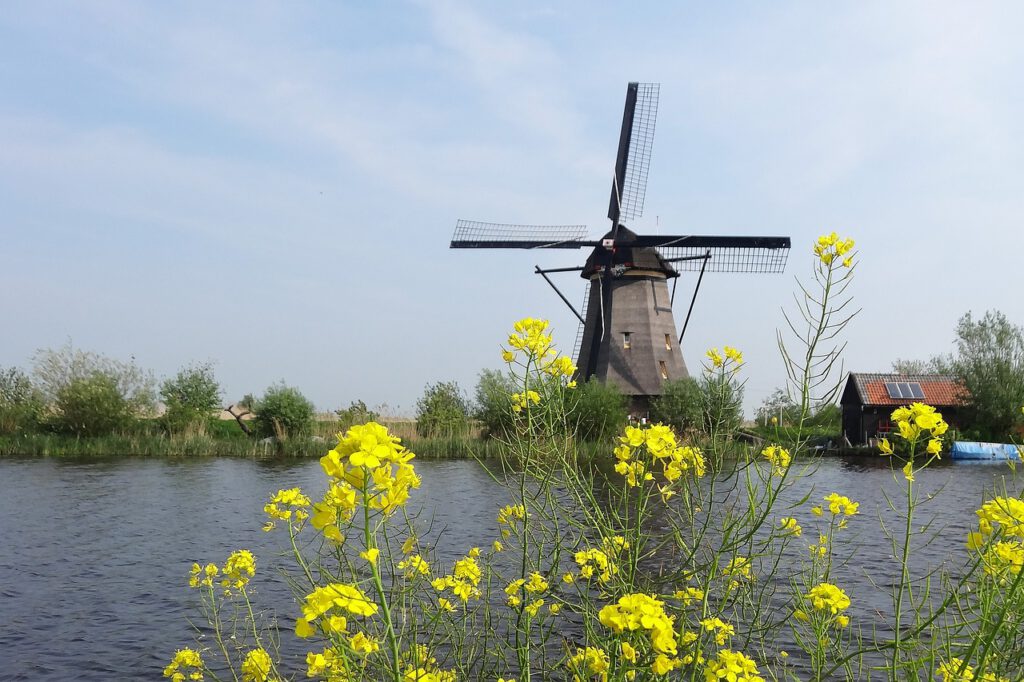Tourism is more than just travel; it is the lifeblood of many economies, the soul of cultural exchange, and a gateway to understanding the world’s diversity. This dynamic industry encompasses a wide array of activities, drawing individuals away from their usual environments for purposes ranging from leisure to business. As we embark on an exploration of tourism, we will uncover its many facets and understand its profound impacts.
Understanding the Types of Tourism
Domestic Tourism
Domestic tourism is an ode to one’s own country. It involves residents exploring the treasures within their national borders, from majestic natural landscapes to historical marvels. This form of tourism not only strengthens national pride but also bolsters local economies by promoting regional attractions. Think of a family trip to the Grand Canyon or a couple’s getaway to the Lake District; these journeys highlight the beauty and heritage that lie close to home.
Inbound Tourism
Inbound tourism brings the world to a country’s doorstep. It involves non-residents visiting a nation, contributing to its foreign exchange reserves and fostering cultural interactions. This form of tourism drives the development of infrastructure and services tailored to meet international standards. Iconic landmarks like the Eiffel Tower or the Great Wall of China become beacons of attraction, drawing visitors from around the globe and enriching the host country’s cultural tapestry.
Outbound Tourism
Outbound tourism is the voyage of discovery beyond one’s homeland. Residents travel abroad, immersing themselves in foreign cultures, cuisines, and languages. This global exploration enriches personal experiences and promotes international understanding. Whether it’s backpacking through Europe or experiencing the vibrant markets of Marrakech, outbound tourism expands horizons and creates lifelong memories.
Medical Tourism
Medical tourism is a growing trend where individuals travel internationally for healthcare services. Driven by factors such as advanced medical technologies, cost-effectiveness, or specialized treatments, this form of tourism combines the need for medical care with the experience of travel. Countries like India, Thailand, and Germany have become hubs for medical tourists seeking high-quality treatments and recuperative environments.
Eco-tourism
Eco-tourism champions responsible travel to natural areas, aiming to conserve the environment and uplift local communities. It promotes sustainable practices and educates travelers about the importance of preserving natural habitats. Whether it’s exploring the rainforests of Costa Rica or the savannas of Kenya, eco-tourism fosters a deep appreciation for nature and supports conservation efforts.
Adventure Tourism
Adventure tourism is for the thrill-seekers and adrenaline junkies. It involves travel to remote or exotic locations to engage in physically challenging activities. From trekking in the Himalayas to scuba diving in the Great Barrier Reef, adventure tourism promises excitement and a chance to push personal boundaries. This form of tourism also contributes to the discovery and development of lesser-known destinations.
Cultural Tourism
Cultural tourism is a journey into the heart of a region’s heritage. It offers travelers the opportunity to experience the arts, traditions, and rituals that define a culture. Whether it’s participating in the Carnival in Rio de Janeiro or exploring the temples of Kyoto, cultural tourism enriches understanding and appreciation of diverse ways of life.


Economic and Environmental Impacts
Tourism is a powerful economic engine. It generates employment, stimulates local businesses, and contributes to GDP. The influx of tourists necessitates the development of infrastructure such as roads, airports, and public facilities, further boosting economic growth. For instance, the tourism boom in Bali has led to the development of luxury resorts, restaurants, and recreational facilities, transforming the local economy.
However, tourism’s impact is a double-edged sword. While it can lead to conservation and heritage preservation, uncontrolled tourism can result in environmental degradation. Overcrowding, pollution, and the destruction of natural habitats are significant challenges. Sustainable tourism practices are essential to balance economic benefits with environmental protection. This includes promoting eco-friendly accommodations, supporting local economies, and encouraging responsible travel behaviors.
The Essence of Hospitality: Beyond Just Service
Hospitality, often synonymous with service, encompasses a broader spectrum. It is rooted in the tradition of welcoming guests with warmth and goodwill, and today, it has evolved into a sophisticated industry catering to the multifaceted needs of global travelers. From opulent hotels to charming bed and breakfasts, hospitality is the heart that makes travel experiences memorable.
Key Components of Hospitality
Lodging
Lodging is the cornerstone of hospitality. It ensures travelers have a comfortable place to rest and rejuvenate. This segment includes diverse establishments, from luxurious hotels and resorts to budget-friendly motels and inns. Each type of lodging caters to different preferences and budgets, ensuring that every traveler finds a suitable place to stay.
Food and Beverage
Food and beverage services are integral to the travel experience. They offer a culinary journey that complements the destination’s cultural and geographical identity. From gourmet dining at Michelin-starred restaurants to savoring local street food, this sector ensures that travelers are well-fed and delighted with new flavors and gastronomic experiences.
Travel and Tourism
While tourism is a distinct industry, it is deeply intertwined with hospitality. Services such as travel agencies, airlines, and cruise ships enhance the travel experience by providing essential logistics and comfort. They play a crucial role in making travel smooth, efficient, and enjoyable.
Recreation
Recreation includes the entertainment and leisure activities that enrich a traveler’s stay. This segment encompasses everything from theaters and sports facilities to wellness centers and spas. Recreational services add value to the travel experience by offering opportunities for relaxation, fun, and personal enrichment.
Economic Significance
The hospitality industry is a pillar of the global economy. It creates millions of jobs, drives local economies, and often serves as the primary revenue source for many regions. From chefs to concierges, the industry provides livelihoods for a vast workforce. It also attracts investment and development, leading to the growth of infrastructure and related services.
Evolving Trends in Hospitality
The digital age and changing traveler preferences have revolutionized the hospitality industry. Platforms like Airbnb emphasize local experiences and authentic stays, challenging traditional lodging norms. Today’s travelers seek more than just accommodation; they desire unique experiences, meaningful interactions, and sustainable practices. The hospitality industry continually innovates to meet these evolving demands, ensuring that stays are not only comfortable but also memorable and enriching.
The Role of Technology in Modern Hospitality
Technology has transformed the hospitality industry. Online booking systems, virtual room tours, and AI-powered chatbots have significantly enhanced the guest experience. Mobile check-ins, digital room keys, and personalized settings using IoT devices are now common expectations. Data analytics allows hotels to tailor experiences to individual preferences, offering a personalized touch that enhances satisfaction and loyalty.
Sustainability: A Core Principle
Modern travelers are increasingly aware of their environmental impact. The hospitality industry responds by adopting sustainable practices, such as eco-friendly amenities, waste reduction, and energy conservation. Establishments that prioritize green practices appeal to a broader audience and contribute positively to environmental conservation.
The Importance of Training and Development
At the heart of hospitality is its human touch. While technology and infrastructure are vital, it is the staff that often makes the difference in a guest’s experience. Continuous training and development ensure that employees possess the latest industry knowledge, soft skills, and problem-solving abilities. Investing in human capital ensures consistent service quality, leading to guest satisfaction and loyalty.


Conclusion
The hospitality industry, with its vast expanse and intricate layers, transcends mere service provision. It is about curating experiences, forging connections, and creating lasting memories. As it adapts to the ever-changing dynamics of the world, its core remains unchanged: genuine care and warmth towards its guests. In the constantly evolving landscape of travel, hospitality stands as the constant that travelers can rely on.

very informative articles or reviews at this time.
This was beautiful Admin. Thank you for your reflections.